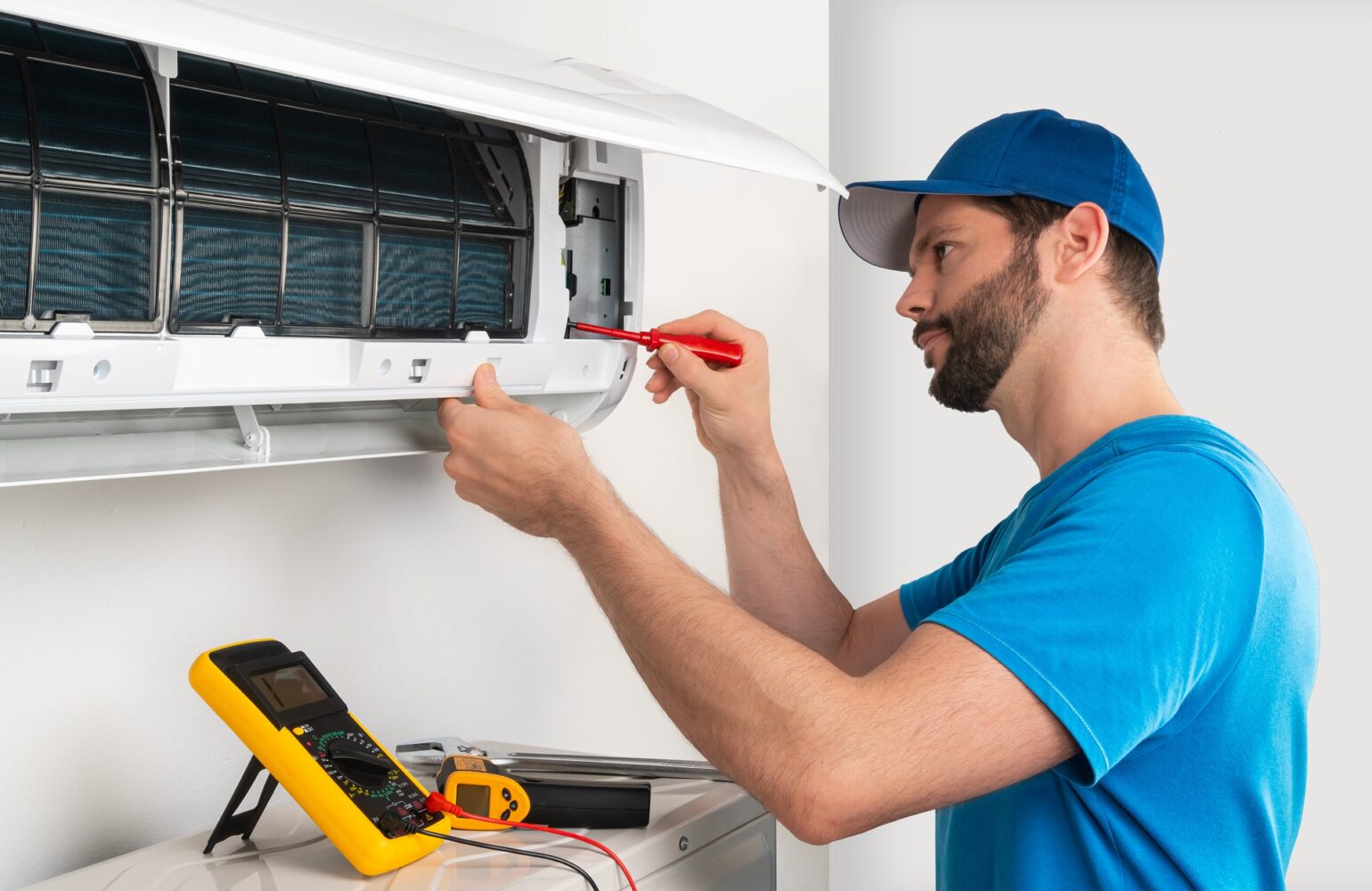The HVAC system is the heart and lungs of your home, maintaining optimal temperatures and ensuring that your family stays comfortable—regardless of the season.
But like all machinery, it has a finite lifespan.
So, how long can you expect your HVAC system to last, and when is it time to consider a replacement?
Here at F&S Master Air, we get this question pretty often—and understandably so. As you make crucial decisions about whether to repair or replace your system, this question should probably be on the forefront of your mind.
So in this post, we’re going to jump into the question and answer it—once and for all.
Let’s dive in!
Life Expectancy of an HVAC System
Typically, the average life expectancy for HVAC units ranges from 15 to 25 years.
This can vary based on the type of unit, the quality of the installation, and the regularity of maintenance.
Central Air Conditioners: On average, these last about 12-15 years. With proper care and regular maintenance, some high-quality units can extend their life up to 20 years.
Furnaces: A furnace, whether it’s gas or electric, can last between 15 and 20 years, sometimes even 30 years if it’s well-maintained.
Heat Pumps: These typically last about 10 to 15 years. Since they work both as a heater in the winter and an air conditioner in the summer, they tend to wear out a bit faster.
Remember, these are average figures. Some systems might fail earlier, while others can surpass these expectations, especially when they’re regularly serviced.
The Impact of Springfield and Ozark Weather
Springfield and the greater Ozark region are characterized by a unique blend of weather patterns.
Homeowners in the area experience hot and humid summers, which means the air conditioning component of the HVAC gets a robust workout.
Winters, on the other hand, can get pretty chilly, requiring the heating system to step in and occasionally work very hard.
Such seasonal shifts require the HVAC system to work efficiently year-round. And due to the local weather patterns, it’s vital to choose systems that are designed for both extremes and also ensure they receive regular maintenance.
When to Consider Replacing Your HVAC System?
Even with the best care, there will come a time when repairs become frequent and expensive, signaling that your system is nearing the end of its useful life.
Here are a few telltale signs it might be time to consider an upgrade:
- Age: If your system is approaching or has surpassed its average life expectancy, start preparing for a replacement.
- Increasing Energy Bills: An aging system will become less efficient, leading to higher energy costs.
- Frequent Repairs: If you find yourself calling technicians more often than before, it might be more cost-effective to get a new system.
- Inconsistent Temperatures: If some rooms in your home are too cold while others are too hot, the system may not be working efficiently.
- Unusual Noises or Odors: Loud or strange noises, as well as unusual smells coming from the system, could indicate serious problems.
How to Know If You Should Repair or Replace Your HVAC System
Making the choice between repairing or replacing your HVAC system can be a challenging decision. Repair might seem like the immediate cost-effective solution, but sometimes, investing in a new system can save you more money and headache in the long run.
Here are some factors to consider when making your decision:
- Age: Systems nearing or exceeding their 15-25 year lifespan might be better off replaced.
- Repair Frequency: Regular repair calls? It might be cheaper to replace in the long run.
- Rising Energy Bills: Consistently higher bills indicate a loss in efficiency, suggesting a potential need for replacement.
- Comfort Levels: If temperatures fluctuate, or if the humidity is off, your system might not be at its best.
- Incentives: Look for local rebates on energy-efficient upgrades, which can make replacement more attractive.
- Safety Concerns: If there are safety risks, like carbon monoxide leaks, immediate replacement is recommended.
- Long-Term Plans: Planning to stay in your home long-term? A new system can provide long-lasting comfort.
Final Thoughts
Replacing your HVAC system is a significant investment, but it’s one that pays off in the long run in terms of energy efficiency, comfort, and peace of mind.
For Springfield and Ozark residents, it’s essential to work with a trusted local HVAC service provider (we here at F&S Master Air would love to come take a look at your current system and give it an age estimate) who understands the unique demands of the region’s weather and can offer tailored solutions.
Regular maintenance, timely repairs, and understanding when it’s time to replace can ensure that your HVAC system serves you efficiently for years to come, no matter what the Ozark weather throws at it.

